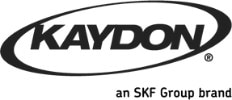
AI-Powered Marketing Strategies for Zero-Click Searches
Key Takeaways
- AI-powered tools can analyze search query patterns to help capture zero-click searches.
- Natural language processing (NLP) generates concise, informative content that effectively answers user queries.
- AI-driven sentiment analysis monitors brand perception, helping to adapt content strategies for better visibility in zero-click search results.
- Optimizing marketing for zero-click searches opens new avenues for brand visibility and authority.
The rise of zero-click searches has significantly altered the digital marketing landscape. As users increasingly find their queries answered directly on the search engine results page (SERP) — through features like featured snippets, quick answers, or knowledge graphs — the need to click through to a website is eliminated. This shift towards instant gratification in information retrieval demands a new approach to content creation and marketing strategies. With a focus on visibility and relevance on the SERP itself, optimizing marketing for zero-click searches becomes crucial. Enter Artificial Intelligence (AI) — a powerful tool capable of transforming how we optimize marketing strategies for this new era of zero-click searches.
The Role of AI in Optimizing for Zero-Click Searches
AI-powered tools have found a significant application in analyzing search query patterns. These sophisticated algorithms can process vast amounts of search data to uncover trends, understand user intent, and identify common questions related to a brand’s products or services. By recognizing these patterns, marketers can create targeted content that directly addresses user needs, thereby increasing the likelihood of appearing in featured snippets or other zero-click search results.
Further, the advent of natural language processing (NLP) has revolutionized content creation. NLP technology enables AI systems to understand and interpret human language. This understanding allows for the creation of content that is both relevant and easily digestible. Employing NLP ensures that content is optimized for zero-click searches. It aids in providing clear, direct answers to common questions, thereby increasing the chances of being featured in search results.
Another significant advancement in AI is the development of sentiment analysis tools. These tools can gauge public opinion and sentiment towards a brand, its products, or services across various online platforms. Understanding how users perceive their brand enables marketers to adjust their content strategies. They can address concerns, highlight strengths, and maintain a positive brand image. Despite potentially reducing website traffic, zero-click searches offer new avenues for brand visibility and authority. Therefore, implementing AI-driven sentiment analysis ultimately improves a brand’s visibility in zero-click search results and positions the brand as a credible source of information.
Enhancing Local SEO with AI for Zero-Click Dominance
As we strive to optimize marketing for zero-click searches, it’s essential to remember that ‘local’ matters. Local searches account for a significant portion of zero-click searches, especially on mobile devices. Therefore, enhancing local SEO becomes a crucial part of a comprehensive zero-click search strategy. AI provides a robust platform to achieve this, offering tools to analyze local search trends, automate local business listings, and generate localized content.
Using AI to Analyze Local Search Trends
Understanding local search trends is key to creating content that resonates with a specific audience. AI tools can identify local search patterns, from commonly used phrases and regional slang to location-specific queries. These insights are invaluable in crafting a targeted content strategy that caters to local nuances and preferences. By making your content highly relevant to a specific geographic area, you increase the likelihood of appearing in zero-click search results for users in that area.
Leveraging AI Tools for Local Business Listings
Consistent and accurate local business listings across multiple platforms play a pivotal role in improving visibility in local search results. This is especially true for zero-click features like Google’s Local Pack. Manually managing these listings can be a daunting task, but AI-powered tools can automate and optimize this process. They ensure that your business information remains consistent and accurate across various online directories and platforms, thereby enhancing your local SEO efforts and increasing the chances of your brand dominating zero-click searches.
Creating Localized Content with AI
Creating unique, locally relevant content at scale can be a challenging task. But with AI-generated content, this becomes a manageable feat. AI content generation tools can help you tailor your messaging to specific regions or cities, thereby creating a more personalized experience for your users. Whether it’s localized landing pages or region-specific blog posts, these tools can help you develop a network of content that targets specific areas. This not only improves your chances of appearing in zero-click search results for users searching for products or services in their area but also helps in building local brand authority.
As we continue to navigate the landscape of zero-click searches, remember that local SEO is a critical component of your strategy. Leveraging AI to analyze local search trends, automate business listings, and generate localized content can give you the edge you need to dominate in this new era of search. So, are you ready to take your local SEO game to the next level?
Harnessing AI for Structured Data Optimization
One of the most effective ways to optimize marketing for zero-click searches is by leveraging structured data. Structured data, like Schema.org markup, provides search engines with additional information about your webpage content, thereby increasing its visibility on the search engine results page (SERP). Implementing structured data can be a complex process, but with the power of AI, marketers can simplify and optimize this task. Let’s dive into how.
Employing AI for Structured Data Markup Generation
One of the key benefits of AI lies in its ability to analyze and process vast amounts of information quickly and accurately. AI-powered tools can analyze your web page content and generate appropriate structured data markup. This automation ensures that your pages are properly optimized for zero-click search results, increasing the chances of your content appearing in rich snippets and other zero-click search features.
Identifying High-Value Structured Data Opportunities with AI
Not all structured data opportunities are created equal. Some can drive more zero-click search visibility for your brand than others. But how do you identify these high-value opportunities? AI algorithms can analyze search data and user behavior to identify the types of structured data that are most likely to boost your zero-click search visibility. This insight allows marketers to focus their resources more effectively, maximizing the impact of their structured data optimization efforts.
Monitoring and Adapting Structured Data Implementation
Search trends and user behavior are not static—they evolve. To stay competitive, marketers need to stay ahead of these changes. AI tools provide real-time insights and recommendations for structured data optimization, allowing you to continuously monitor and adapt your structured data implementation. This continuous optimization ensures your brand maintains its competitive edge in zero-click search results.
In the dynamic world of zero-click searches, structured data optimization is not a one-time task—it requires continuous monitoring and adaptation. By harnessing AI for structured data optimization, you can ensure your web pages are properly marked up, focus on high-value opportunities, and continuously adapt to changes. This way, you’re not just keeping up with the zero-click search trend, you’re leading it.
Integrating AI-Driven Voice Search Optimization for Zero-Click Success
As we continue to explore ways to optimize marketing for zero-click searches, it’s impossible to ignore the growing importance of voice search. With the rise of smart speakers and digital assistants, more and more users are turning to voice search, presenting new opportunities and challenges for marketers. It’s not just about understanding the user’s intent anymore; it’s about understanding their language, their questions, and their conversational queries. And this is where AI comes into play.
Optimizing Content for Natural Language Queries
Voice search queries are a different beast compared to traditional text searches. They are longer, more conversational, and often formatted as questions. This shift calls for a new approach to content creation—one that caters to natural language queries. AI language models, like GPT-3, have been instrumental in this process. These advanced models can help marketers generate content that is optimized for natural language queries, thereby increasing their chances of appearing in voice search results and capturing zero-click traffic.
Identifying Key Opportunities with AI-Powered Voice Search Data Analysis
Just as with any other aspect of digital marketing, data is king. AI tools can process large volumes of voice search data to uncover common questions, topics, and themes that users are searching for. This intelligence allows marketers to create content that directly addresses these key opportunities, improving their chances of being featured in voice search results and driving zero-click engagement.
Optimizing Content for Featured Snippets
Featured snippets have always been a goldmine for zero-click search optimization, but they are even more crucial when it comes to voice search. These rich results are often used as responses for voice search queries. Optimizing content for featured snippets can lead to increased click-through rates (CTRs) when effective strategies and best practices are employed. AI-driven content optimization tools can help marketers structure their content in a way that is more likely to be selected as a featured snippet, thereby increasing their visibility in both voice and traditional search results.
In conclusion, as we continue to optimize marketing strategies for zero-click searches, integrating AI-driven voice search optimization is a step we cannot afford to miss. By optimizing content for natural language queries, identifying opportunities through AI-powered voice search data analysis, and optimizing content for featured snippets, we can navigate the new era of digital advertising successfully. But the question remains: are you ready to leverage AI and voice search to boost your zero-click search success?
Author: Melih Oztalay




















